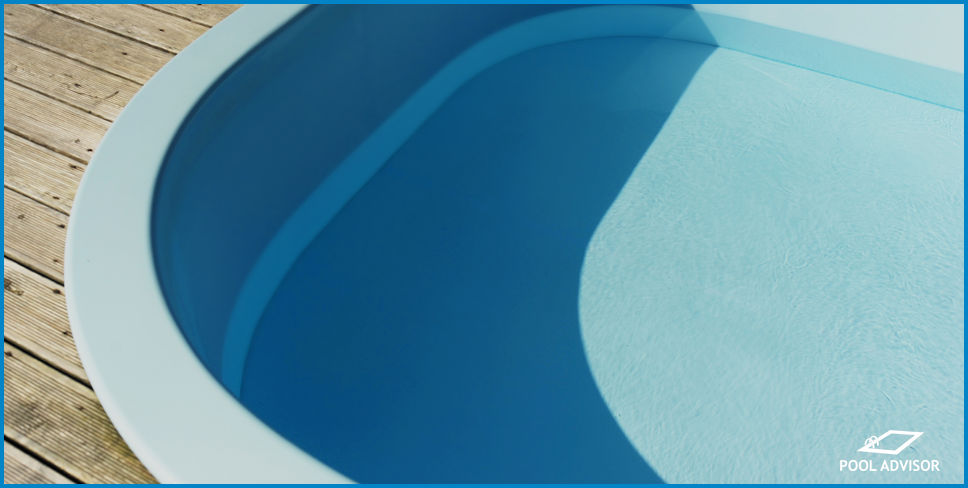
Pool Popping - What Is It? Why Does It Happen?
If you are preparing to fully or partially drain your in-ground swimming pool, either for renovation work or to balance your chemistry, you may have been advised to be careful with this procedure in order to avoid pool popping. But what is pool popping, and why is it a bad thing?
In this article, we will discuss what pool popping is, what causes it, why it is a problem, and how you can prevent it from happening in your pool.
What Is Pool Popping?
Pool popping refers to when the hard, external shell of your in-ground swimming pool implodes.
This implosion typically shows up as large cracks or breakage in the pool’s surface and outer shell, which can lead to leaks as well as major foundational damage. In extreme cases, the entire pool may even appear to rise out of the ground.
If you have seen photos where a pool popped out of the ground entirely, you should be aware that this is most common among old and neglected pools.
What Causes Pool Popping?
Pool popping is caused by the change in water pressure across your pool shell.
When your swimming pool is full of water, the water inside the pool is balanced against the groundwater sitting on the outside of the pool, and the forces pressing into and out of the pool are more or less balanced.
If that water is suddenly drained, the force pressing into your pool by the water table on the outside is no longer balanced against the water in the pool.
In this situation, the walls of your pool can rupture as they are not strong enough to withstand the force.
Why Is Pool Popping A Problem?
Pool popping is a problem because it can cause significant damage to in-ground swimming pools. Pool popping not only damages the inner surface of your pool but often has negative effects on the structural integrity of the concrete outer shell of your pool as well.
In some cases, plumbing elements of your pool can also be affected by pool popping, as the damage and rupturing of the walls can rip adjacent piping out of its fittings.
If the outer shell of your swimming pool becomes damaged, it may fail to hold water properly. This can cause pool leaks, which can in turn result in damage to the overall foundation of your swimming pool.
Foundation settling is likely to occur if underground leaks are present, so it’s important to take early action if you suspect that your pool has sprung a leak.
Put simply, pool popping is a problem because it causes severe damage to swimming pools.
The damage caused by pool popping can be very expensive to repair as this process often involves making fixes to multiple layers of your pool, from the surface through to the outer concrete shell.
How Can You Prevent Pool Popping?
Don’t Drain After Heavy Rain
To prevent pool popping, you should avoid draining your swimming pool’s water in certain conditions. Most sources suggest that you avoid draining your pool after heavy rain.
This is because the water table rises up after a storm, and the soil is softer. This means more pressure on your pool, increasing the likelihood of damage and popping.
Drain Water Away From The Pool
You should always drain excess pool water to a point very far away from the pool, such as towards a downhill area or down a storm drain if one is available to you.
Use Pressure Relief Plugs
Many pools are equipped with hydrostatic pressure relief plugs to assist with preventing pool popping. These plugs are broken out with a chisel and hammer when the pool is almost empty, and can be replaced during the refilling process.
Only Do A Partial Drain & Refill
If you are only performing a partial drain and refill of your pool’s water, pool popping is less likely to occur. Only drain your pool as much as necessary. If your pool has not had water removed for a long time, it may also help to remove the water slowly.
Use Props
If a professional needs to drain your pool to perform work such as swimming pool resurfacing, they will often use what are known as ‘props’.
These are adjustable length poles that are placed inside the pool and which apply pressure to the walls to press against the hydrostatic pressure of the water on the outside.
Refill Water As Soon As Possible
Finally, it is very important to work to replace the water as soon as your intended pool repairs or chemical adjustments have been made. You should never leave your pool empty for longer than one week unless it is being attended to by pool construction professionals.
Conclusion
Pool popping can often be a source of fear for new swimming pool owners.
While pool popping is not very common when the water is only drained partially for short amounts of time, if you are preparing to drain your pool entirely for repairs or resurfacing, this issue can be more likely.
Do you have any questions about pool popping or how to prevent it? Get in touch with us in the comments section, we’d love to help!

Louis
A chemical engineer by trade, Louis is committed to debunking myths in the pool industry by explaining the underlying chemistry and making it accessible to all.
